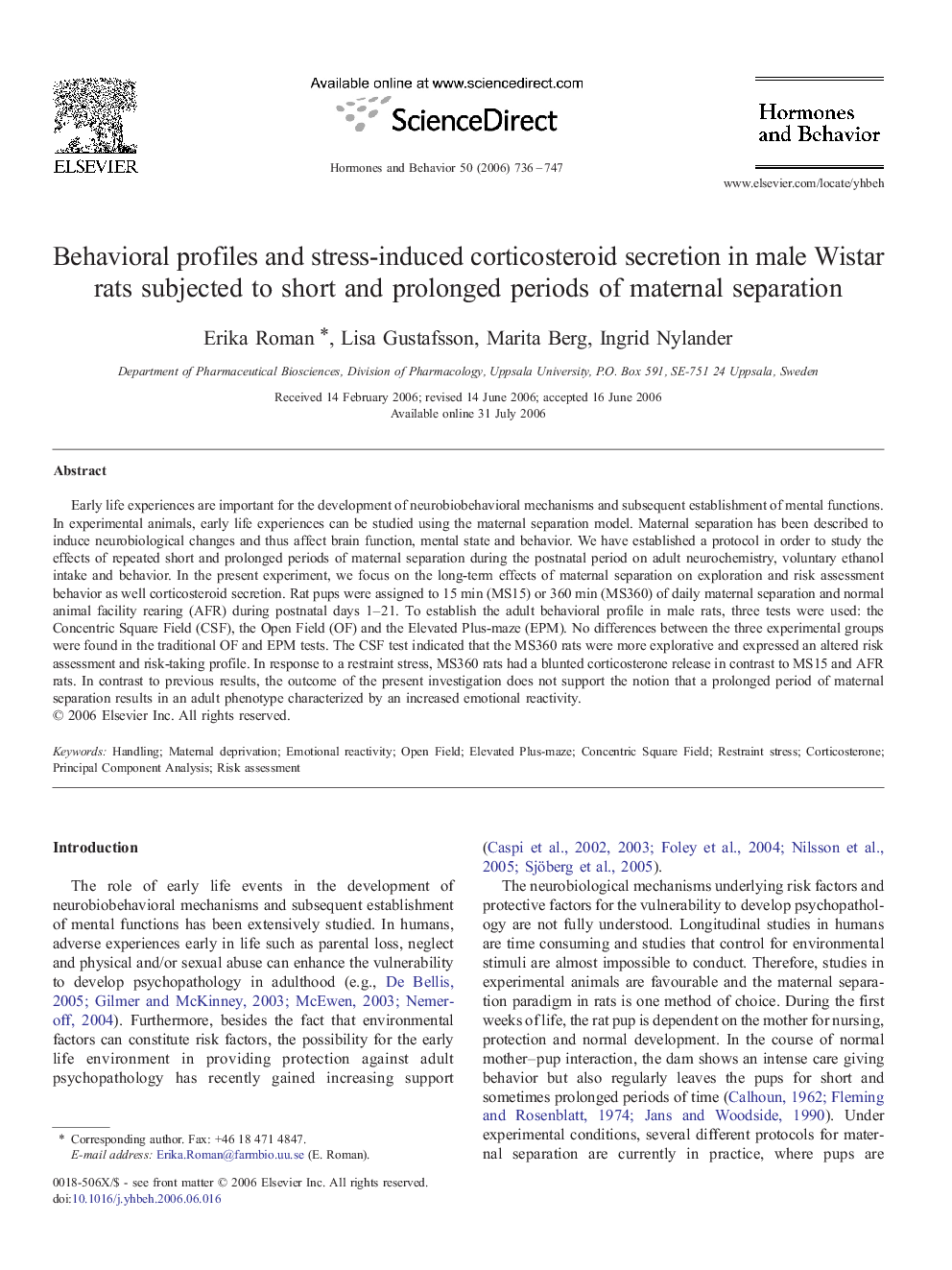| Article ID | Journal | Published Year | Pages | File Type |
|---|---|---|---|---|
| 323884 | Hormones and Behavior | 2006 | 12 Pages |
Early life experiences are important for the development of neurobiobehavioral mechanisms and subsequent establishment of mental functions. In experimental animals, early life experiences can be studied using the maternal separation model. Maternal separation has been described to induce neurobiological changes and thus affect brain function, mental state and behavior. We have established a protocol in order to study the effects of repeated short and prolonged periods of maternal separation during the postnatal period on adult neurochemistry, voluntary ethanol intake and behavior. In the present experiment, we focus on the long-term effects of maternal separation on exploration and risk assessment behavior as well corticosteroid secretion. Rat pups were assigned to 15 min (MS15) or 360 min (MS360) of daily maternal separation and normal animal facility rearing (AFR) during postnatal days 1–21. To establish the adult behavioral profile in male rats, three tests were used: the Concentric Square Field (CSF), the Open Field (OF) and the Elevated Plus-maze (EPM). No differences between the three experimental groups were found in the traditional OF and EPM tests. The CSF test indicated that the MS360 rats were more explorative and expressed an altered risk assessment and risk-taking profile. In response to a restraint stress, MS360 rats had a blunted corticosterone release in contrast to MS15 and AFR rats. In contrast to previous results, the outcome of the present investigation does not support the notion that a prolonged period of maternal separation results in an adult phenotype characterized by an increased emotional reactivity.
